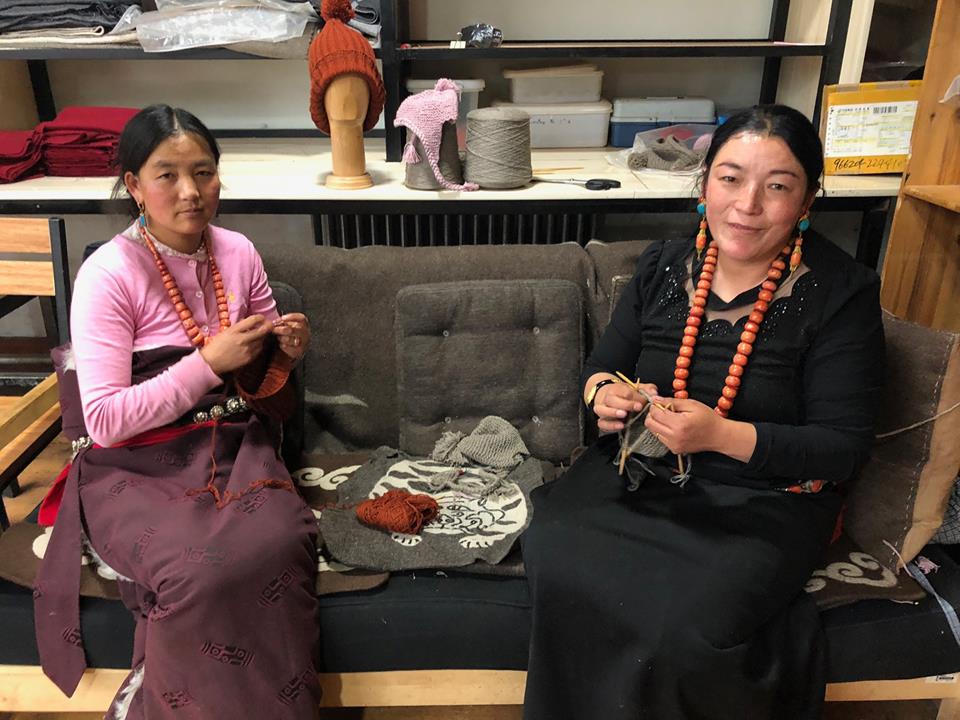THE WOMEN OF RITOMA
|
For women, chores went on all day, leaving little time for their children which they often left with their parents. It was a hard life in a harsh climate ranging from intense sun in the summer to freezing temperatures in winter Things are changing and now women have more options. Working hard was always part of their life and when Norlha began to offer jobs over a decade ago, they easily embraced the change from herder to artisan. Norlha’s workforce is now over 60% women, all former nomads or from nomad families. A decade has brought in more drawn from the classroom and with that, the will to tackle the challenges offered by the digital world. Gradually, they plunged into the opportunities offered to them with great enthusiasm, channeling their energies into new pursuits. Financial independence allows them, married or not, to explore the world around them and have more say in their lives. They used to walk to work, now they ride bikes. They work from IPads, reading and entering data linked to Norlha's ERP system. They go on winter pilgrimage with their families, flying for the first time, as far as Lhasa. Wangdi Tso, who works in Norlha’s sales department met her husband at work. She wears jeans and loves basketball. They have two children and are the breadwinners and run their household. Pema Tso is not yet married and has embraced all the activities open to her. After hours, she has discovered basketball and yoga, and takes English classes. Jigje Tso is deaf mute and has two children. As a highly skilled weaver, she is, along with her father, the family’s bread winner. Her success is an example to all that new prospects can change lives. Kharmo is a single mother and needs to depend on no one, now able to help her parents in their old age. Though rooted in village life, women now have more opportunity to see beyond it, understand the world at large and what it holds for them. Cellphones have connected them to friends and relatives outside their immediate spheres, and given them a sense of belonging in a larger world. Their mothers only knew herding and couldn’t advise their daughters when it came to a different future. Now working mothers will be able to better help their daughters face the challenges of the modernity that is continuing to change their lives. |





























